Thor: The Dark World | Press conference
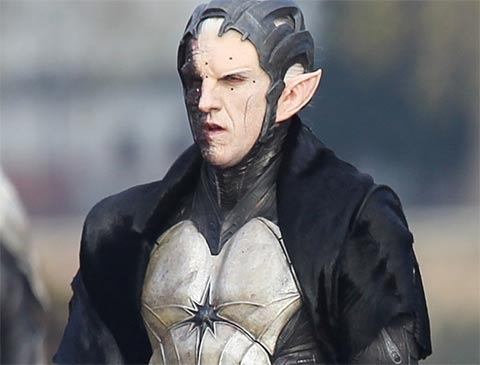
Ahead of the world premiere on Tuesday 22nd October, the cast and crew of Thor: The Dark World visited London to promote the sequel to their 2011 Marvel adaptation. The Upcoming caught up with director Alan Taylor, producer Kevin Feige and actors Chris Hemsworth, Natalie Portman, Christopher Eccleston, Tom Hiddleston and Kat Dennings.
Chris and Tom, having worked together on a number of films do you feel more free to experiment as there is now trust between you?
Chris Hemsworth: This is the third film we’ve shot together so we’ve gotten to know one another and we can pick up where we left off. From the beginning we were lucky because we had chemistry, and the same kind of enthusiasm. It’s a relationship I really look forward to delving into every time.
Tom Hiddleston: From the beginning of Thor, all the way through The Avengers and into Dark World it has been an amazing adventure for both of us. The two characters define each other and need each other. All acting is about what happens in the space between people, so the more you trust each other the deeper you can go. When I’m on set with Chris, whatever he serves I’ll return and that is the joy of it for me.
Another theme is sibling rivalry. Chris, you have two brothers – did you draw from that in your interactions with Loki? Is there competition between the Hemsworth brothers?
CH: We are competitive (as siblings are) in everything from sport to who’s controlling the TV remote – but in the industry not so much. All three of us understand the frailty and inconsistency of the work. We help each other with auditions or whatever scripts we’re working on and always have, but we’re not in direct competition. It’s more of a team effort than anything else. The sibling relationship plays into a lot of scenes, because you understand what it’s like to have that love/hate sort of thing. I certainly try to draw from whatever experiences I’ve been through.
TH: I suppose the thing about siblings is that they know you better than anyone and you’re always bound together by your histories. There’s something very honest about your interactions. In this film, Thor is able to demand from Loki that he play his hand. Loki is someone who never shows how he really feels and the only person who gets close to him is Thor. That seems very true of sibling relationships.
Natalie, in the first film Jane was very much a spectator and now she’s right in the middle of the action. Did that excite you?
Natalie Portman: It was exciting to get to come back and work with everyone. Jane goes to Asgard this time, so I was lucky to have scenes with Tom, Rene Russo and Anthony Hopkins. I also got to continue the fun rapport between Kat Dennings, Stellan Skarsgård and Chris.
How different is it filming in Britain compared to Hollywood?
CH: The nice thing about the UK is that there are brilliant locations to take advantage of. I love the aesthetic that this film has – we get to see London. Most of these films have New York or American cities as the backdrop, so I loved the difference in shooting here.
NP: I love working here, and I am envious of British actors and crews. American actors end up like gypsies, moving from city to city all the time. You can have a rich and fulfilling career doing theatre, TV and film all in London so it’s pretty cool to be able to live and work in the same place.
Kevin Feige: What keeps Marvel coming back to London are the crews. We’re starting our fourth film here next year in Shepperton, and all four have been amazing experiences.
What is it about the character of Loki that people seem to love?
CH: I don’t know if it was ever the plan to have Loki in so many films, but everything that Tom brought to the first one with the mixture of strength, villainy and vulnerability (which you can immediately empathise with) is why he keeps being brought back.
TH: Loki is defined by Thor: they are yin and yang, the sun and the moon. The whole point is that they are in opposition. The popularity of the character has been such a surprise, and I find him a fascinating prospect. He is a mixture of playfulness and charm, but he is such a broken character: grief-stricken and jealous, angry and lonely. The cocktail of his psychological damage and his playfulness is such an interesting thing.
Do you agree that this film is more humorous than other Marvel films have been?
Alan Taylor: When I went into it I thought my mandate was to dirty and darken the world a bit. Then as we started the process, I realised that if we are going to darken it we had better make sure that it is balanced. The key to the Marvel Universe is that you have to keep it funny and light.
Chris, how do you feel you’ve developed as an actor between the first Thor film and the sequel?
CH: It’s nice to be able to approach a character again in a different way, with a different director. I’ve grown as a person so that echoes into Thor. It was nice to have a more mature Thor, who is less petulant and arrogant – but that means he understands the darker side of responsibility and sacrifice.
Alan, this is one of the shorter Marvel films. What was the editing process like?
AT: The film had to be dark and emotionally engaging. It also had to be funny and keep its entertainment value. Part of that process is condensing, tightening and making it roll along as quickly as it can. Naturally things fall out. There was never a running-time issue – it was always about how we could make it better, funnier and more effective.
The tone of the Marvel Cinematic Universe is becoming more fantastic, more “out there”. How do you ground your performances?
KF: There are spaceships and other planets in this movie, and we have found that humour is an amazing way to get the audience to embrace all that craziness. It’s worked well since the first Iron Man film.
Christopher Eccleston: I was completely excluded from any of the humour because my character is grounded in vengeance. My job was to bring the threat and the menace, grounded in bitterness. It took six hours to put my make-up on, so I was not a happy elf.
NP: Even though the characters are travelling through realms, they are experiencing things we can all relate to. My character didn’t call a guy back, there’s a long distance thing going on and she has to meet the parents. These are things that most women can relate to. I’m the mortal among the gods, so that’s naturally more grounded.
CH: The first day we arrived in costumes with the sets, Anthony Hopkins said to me: “There’s no acting required here.” So I always remember to keep it simple.
TH: What I think is grounding about these films is the family relationship. We’re travelling through space and time dealing with gods and monsters, but at the heart of the film is a family and the fractious, intimate interaction they have.
KD: Darcy’s the most grounded person in the film. Even though she’s spacey, she’s not in space. I get to be the outsider to all the craziness and comment on it as the audience would.
Marvel seems to have a good strategy on the big screen and on TV. How far ahead are you planning?
KF: We are a tight-knit group, so all the movies are very co-ordinated. We have announced through to the end of 2015, but are planning as far as 2017. Sometime next year we will announce what those films will be.
What is the point of Malekith’s story line?
CE: That’s what I said to my agent. No, the point is vengeance. My job was to bring a dark element. The Dark Elves are seeking to turn light into darkness, it’s really that simple and that classic.
KF: We needed that in a movie where we wanted to play our villain from The Avengers as something more ambiguous. In order to do that, we needed someone who could drive the storyline and give Thor something to fight against.
AT: In one of the deleted scenes, Malekith says to Odin: “What are you willing to sacrifice for what you believe?” Every character goes through a turning point like that in the movie. Malekith will sacrifice anything for principle.
Deep down, is Loki really evil, or is it a jealous façade?
TH: Every villain is a hero in his own mind. People make choices and justify those choices no matter how misguided their motivation. The great thrill for me to play this character across three films is that he didn’t start out that way. The narrative in the first film is of a young prince brought up to believe in his right to the throne, who finds out that this whole story is a lie – that he was left to die on a frozen rock and adopted. This breaks his heart. All his villainy comes from something deeply vulnerable. I can play the dynamic of “to what extent is he redeemable?” It’s a fun fault line to dance on.
Timothy Bano
Thor: The Dark World is released nationwide on 30th October 2013.
Read our review of Thor: The Dark World here.
Watch the trailer for Thor: The Dark World here:


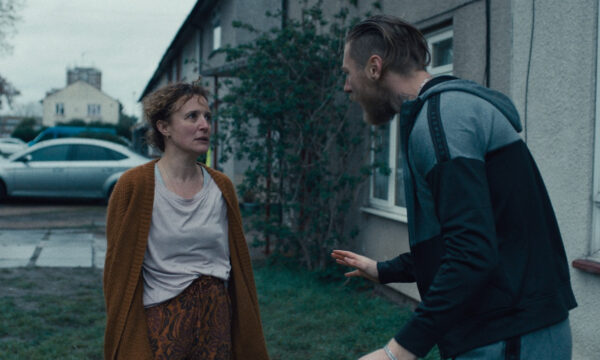

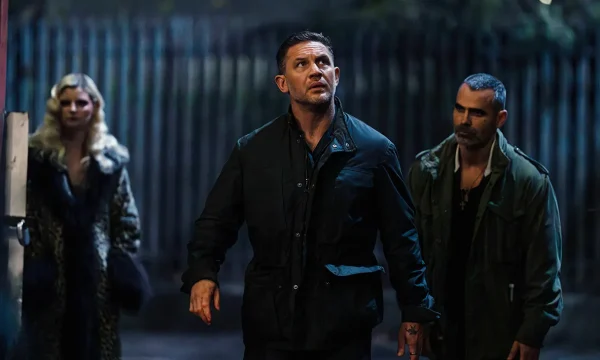
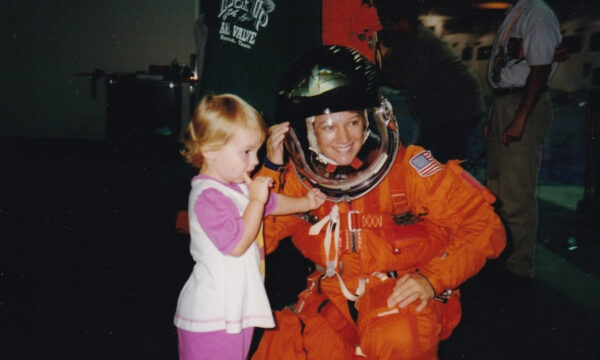
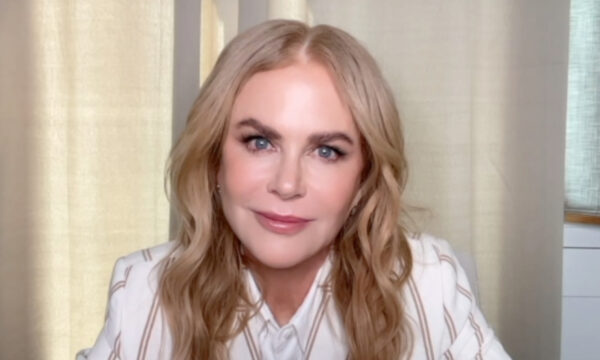
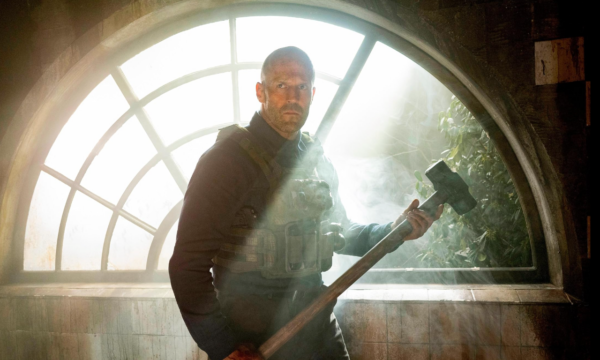
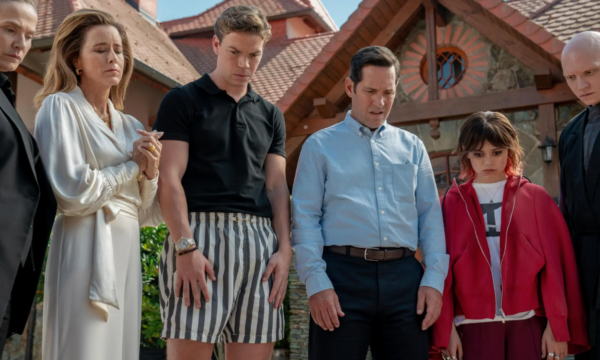









Facebook
Twitter
Instagram
YouTube
RSS